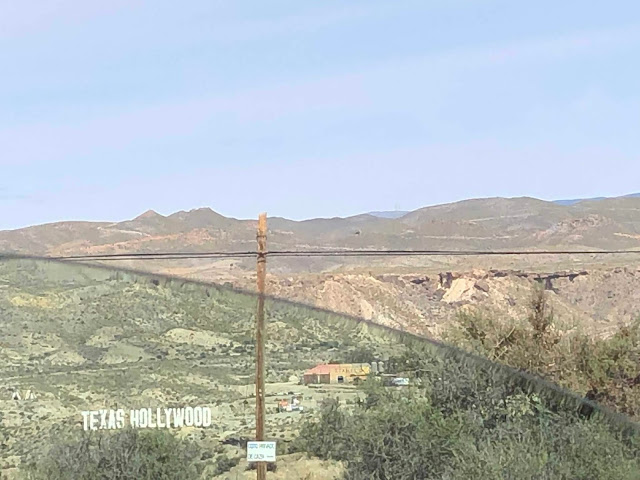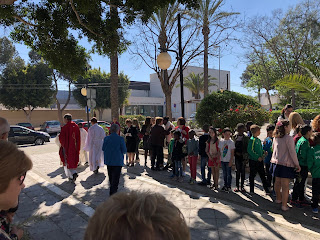Unity in Diversity
I am preaching on the first reading today, for a mid-day prayer service. The reading is Ephesians 3:2-12, and can be found here. And here is my reflection!
When I was
in graduate school, there was another student who was agnostic, studying
theology but from the outside looking in, while the rest of us were on the
inside looking at something we already believed. She was a great student, very bright and
eager to learn. When she started
teaching, she gave it her all, and became a good teacher. As we got to know each other, our friendship
taught me two things. First, she was a
seeker, always looking for God, even though she would not have spoken of her
search in that way. It was like she
could see that the beauty of creation pointed to the divine, but she wasn’t yet
ready to say that the divine exists. That
seed of desire for God was deeply implanted in her heart, even though she did
not recognize it as such.
The second
thing I learned from her came when we had both started teaching. When she didn’t know the answer to something
she became flustered and felt like a failure.
While I sometimes did that (don’t we all), there were other times when I
knew it was okay not to know. Sometimes
I was able to tell the students that I didn’t know but I would find out. At other times we were able to start a
conversation about mystery. There are things
I don’t know because my understanding of God has not yet grown that far, and
there are other things that are simply beyond the ability for human beings to
know. (That conversation usually comes
up during a discussion of Trinitarian theology.) For me, that was a joyful moment, to see the
mystery beyond my knowledge, hoping that someday more would be clear to me.
Today we
hear Paul say, “I figured it out.” He is speaking of the mystery of God, and
tells us of his “ah-ha” moment, when the light bulb clicked on and he gained a
little insight into that great mystery.
You can hear the excitement in his words. In fact, it moves him so powerfully that he
is sent on a globetrotting mission to tell the world what he has learned, with
(as he says) “boldness of speech.” His
message is that of unity: that God is
not just the God of the Jews, but the God of all peoples, even the
Gentiles! To Paul, this is very exciting,
a revelation to him and a catalyst for his new way of living.
Paul’s message brings with it the
challenge of overcoming societal barriers and of teaching others of the value
of the diversity and unity of the whole human race. Society in Paul’s world was not so different
from our own. We have a tendency to
divide the world into “us” and “them,” into groups that seem to form opposing
sides. Those who are like us and those
who are not like us; Jew and Gentile; white and not-white; clergy and laity; Catholic
and Protestant; Christian and atheist (or Christian and Muslim); Democrat and
Republican; and on and on. We do it all
the time. Sometimes we divide in order
to understand our roles, such as when we distinguish between teacher and
student or parent and child. Sometimes
it’s about our identity, such as when we distinguish between religious orders
or ethnic background. But often,
especially lately, we seem more likely to divide in order to know that “we” are
right, and “they” are wrong. Rather than
highlighting and appreciating the diversity, we are distinguishing in order to
separate ourselves from others. Perhaps
this is seen most clearly in the election season, when the one I disagree with
not only differs in opinion, but also rides a black horse, wears a black hat,
and carries a bayonet.
It’s
somehow impossible to co-exist with those who see the world differently. But is that not exactly what Paul’s insight
is about? Here he tells us that “they”
(the Gentiles) are coheirs, copartners in the promise of God—even members of
the same body. Not only should we get along,
but we need to work together in order
for things to work out. We’ve seen in
our political system what happens when opposing sides refuse to work together.
Nothing. Time wasted. Frustrated efforts.
Paul calls
us even one step further than simply working together and recognizing diversity
in our unity. He calls us “coheirs” – we are children of the same God, called
to live out God’s promise of salvation united.
There’s only one heaven—no separate rooms for “us” and “them.” We must co-exist, to share together in God’s
Kingdom. There is room for each one of
us, even the ones who are so very “other”.
When I think of all human beings coming together in that one Kingdom of
God, when I see all the different sizes, shapes, and skin tones, I too get
excited about Paul’s insight into the mystery of God.




Comments